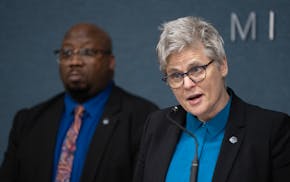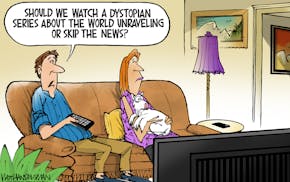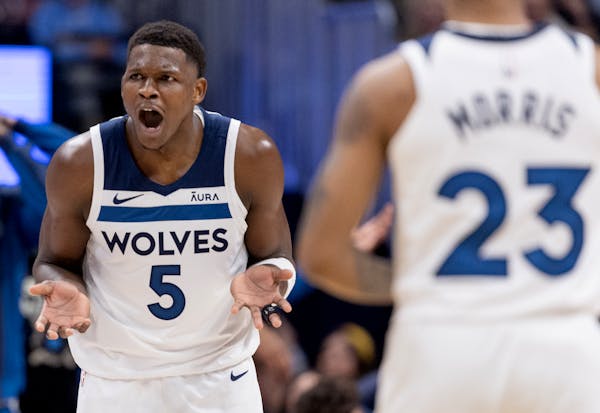Until a few years ago, Minnesota enforced a longstanding prohibition on ticket scalping. In 2007, Gov. Tim Pawlenty worked with DFL majorities in the Legislature to enact legislation allowing concert and sporting event tickets to be sold on secondary markets.
As founder of an organization that promotes personal responsibility and individual freedom, I celebrated this public-policy victory -- by buying tickets on eBay to a sold-out Broadway show. The transaction was a good deal for both the seller and me. The seller made a tidy profit by selling me two tickets for more than face value. I secured good seats to a show I wanted to see.
But ticket sellers, entertainers and sports teams believe they own those tickets -- even after you purchase them. They want to take away this newfound freedom.
Ticket scalping, or selling tickets for more than face value, is nothing new. State, local and even federal legislation has been crafted for nearly 100 years trying to prohibit it, often with the help of lobbyists for sports teams and venues.
Yet big events or popular concerts make ticket scalping inevitable. There is nothing to compare to attending the last game of the World Series. And consistently, market forces prevail. There are always a limited number of seats available to any popular event, and many people are willing to pay a competitive price to be part of it.
The reselling of tickets is big business -- close to $4.5 billion a year nationwide, according to analysts. Every ticket resold by someone other than the original seller likely reflects huge demand for that event, suggesting that the market could have sustained higher original ticket prices. One prominent owner of multiple sports teams said that he disliked scalpers because they make money off of him without his permission.
To better control the secondary market, sports teams are starting their own "preferred" resale websites like the Vikings Ticket Exchange. This site imposes price floors and ceilings on resales so that ticket price is once again controlled by the team, not the market.
Artists in particular seem unified in their defense of restricted tickets to their concerts, believing that their most loyal fans are often unable to secure a reasonably priced ticket due to resellers who inflate ticket prices. Of course "reasonably priced ticket" varies quite a bit from what I consider reasonable. Tickets to Madonna's St. Paul show start at $220 -- not exactly an affordable night out for the masses.
Recently, sports team owners, entertainers and ticket sellers have developed aggressive new rules designed to prevent ticket scalping. While these new restrictions will provide greater market control for venues, teams and performers, they will, in the long term, severely curtail our newfound freedom to purchase and use tickets as we please.
The new debate is focused on electronic tickets, or other nontransferrable tickets. With this new policy, you don't receive paper tickets to an event. Instead, to gain admission, you have to show a photo ID along with the credit card used to purchase the tickets.
It's sadly ironic that we live in a state where anyone can vote in an election without showing any form of identification but performers may seek to stop the same people from entering a concert in a publicly funded stadium.
Supporters of this policy say it is a convenient way to reduce ticket fraud and counterfeiting as well as to prevent computer spammers from cornering the market on popular events. This ticketing restriction also prohibits you from giving your tickets to charity or to another family member. It also prevents you from reselling your ticket on eBay, Craigslist or any other secondary market.
The elimination of the secondary market and ticket gifts is enough reason to oppose this practice. Worse, this practice once again creates a monopoly for the team or the original ticket seller.
Paperless tickets are already being implemented by many performers. But lawmakers in at least half a dozen states are working to protect consumer rights to trade or resell tickets, introducing legislation banning this restriction.
Minnesotans will hear more about this issue, too, as legislation was recently introduced at the Legislature to restrict paperless tickets. While the Twins and the Vikings haven't yet adopted paperless tickets, that fight is looming.
"There's a battle being waged between scalpers and fans. And scalpers are winning," said Minnesota Twins President David St. Peter recently when asking legislators to oppose pending legislation that would affirm consumers as the rightful owners of tickets they purchase.
When you buy a ticket to a sporting event or a concert, you own it. It's your personal right to use that ticket, give it to a family member or scalp it. Let's hope that in Minnesota, we don't allow big corporations, big entertainers and sports teams to take away one more right -- the right to own what we purchase.
-----
Annette Meeks is CEO of the Freedom Foundation of Minnesota.

BWCA's future likely hinges on election
Saving the dinosaurs: Why there's a future for community newspapers
Readers Write: Gun storage laws, Uber and Lyft, 24/7 businesses, the pipe organ


